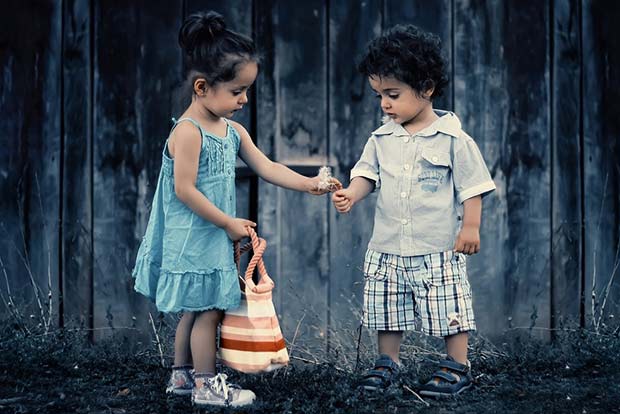Begin typing your search...
Science of Parenting: Raising a compassionate child
Family structures have moved from joint families to nuclear, often with both parents working. And the first to experience this impact are children.

Chennai
Two generations ago, most often, large families lived in a single home and children were brought up, by not only their parents but the extended family too. Children grew up sharing their time, space and things with their cousins, uncles, aunts and grandparents. There was a collective responsibility in raising children due to which the entire burden did not rest solely on parents.
Today, children are growing up in much smaller families with fewer people in their lives. This reduces the opportunities to learn to share with others. They grow up focused on just their personal space and belongings. It’s crucial that parents provide opportunities to children, thereby helping them embrace the sharing mentality.
Sharing time: Parents should start devoting more time to children — this makes them feel included and loved. We have to be accessible to children and not always immersed in our phones, laptops, books or newspapers. Through this act children will learn what it means to be present for others. It is important we spend time with children for a chat, a game, or doing any fun activity together and not just the instructional time spent on their school work. In earlier times, there would always be a grandmother or aunt or cousin available for the child. Children will not grow up knowing what it means to share their time generously with others unless they have experienced it themselves.
Sharing space: The best opportunity for children to learn is when the parents welcome home their friends, grandparents or relatives. This helps them to experience what it means to share the space with others. Children also watch and observe how we support others — for example, how we take care of a grandparent who is undergoing a surgery. When we have guests, they may need to share their space — maybe they have to give up their room or bed or share their belongings such as books or toys. When they are given such opportunities, they will learn how to care and be tolerant.
Sharing work: Most of the parents ask their children to focus on studies and do not include them in household chores. This actually robs them of valuable opportunities to be a part of the give and take rhythm of the house. Start asking them to help you with small tasks.
Undoubtedly, large families contribute to a child’s development in so many ways. But with minor changes in nuclear family structure, it is possible to provide an environment which will enrich our children’s lives immensely.
— Mrinalini Banerjea is a certified parent educator with Parenting Matters, an organization which empowers parents to build deeper connection in families
Visit news.dtnext.in to explore our interactive epaper!
Download the DT Next app for more exciting features!
Click here for iOS
Click here for Android
Next Story



